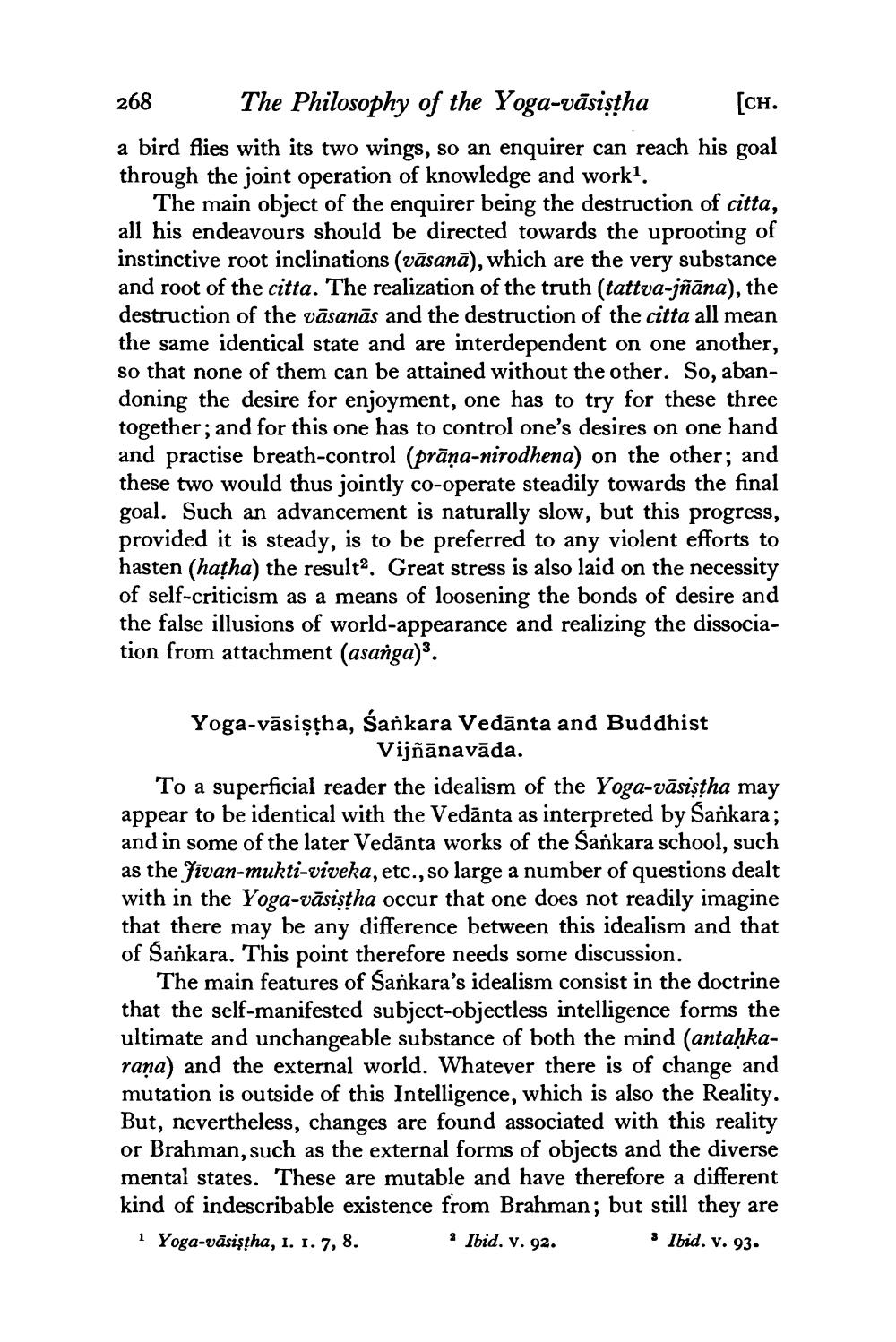________________
268 The Philosophy of the Yoga-vāsistha [CH. a bird flies with its two wings, so an enquirer can reach his goal through the joint operation of knowledge and work?.
The main object of the enquirer being the destruction of citta, all his endeavours should be directed towards the uprooting of instinctive root inclinations (vāsanā), which are the very substance and root of the citta. The realization of the truth (tattva-jñāna), the destruction of the vāsanās and the destruction of the citta all mean the same identical state and are interdependent on one another, so that none of them can be attained without the other. So, abandoning the desire for enjoyment, one has to try for these three together; and for this one has to control one's desires on one hand and practise breath-control (prāņa-nirodhena) on the other; and these two would thus jointly co-operate steadily towards the final goal. Such an advancement is naturally slow, but this progress, provided it is steady, is to be preferred to any violent efforts to hasten (hatha) the resulta. Great stress is also laid on the necessity of self-criticism as a means of loosening the bonds of desire and the false illusions of world-appearance and realizing the dissociation from attachment (asanga)3.
Yoga-vāsiştha, Sankara Vedānta and Buddhist
Vijñānavāda. To a superficial reader the idealism of the Yoga-vāsiştha may appear to be identical with the Vedānta as interpreted by Sankara; and in some of the later Vedānta works of the Sankara school, such as the fivan-mukti-viveka, etc., so large a number of questions dealt with in the Yoga-vāsiştha occur that one does not readily imagine that there may be any difference between this idealism and that of Sankara. This point therefore needs some discussion.
The main features of Sankara's idealism consist in the doctrine that the self-manifested subject-objectless intelligence forms the ultimate and unchangeable substance of both the mind (antaḥkarana) and the external world. Whatever there is of change and mutation is outside of this Intelligence, which is also the Reality. But, nevertheless, changes are found associated with this reality or Brahman, such as the external forms of objects and the diverse mental states. These are mutable and have therefore a different kind of indescribable existence from Brahman; but still they are 1 Yoga-vāsiştha, 1. 1. 7, 8.
? Ibid. v. 92.
* Ibid. v. 93.




